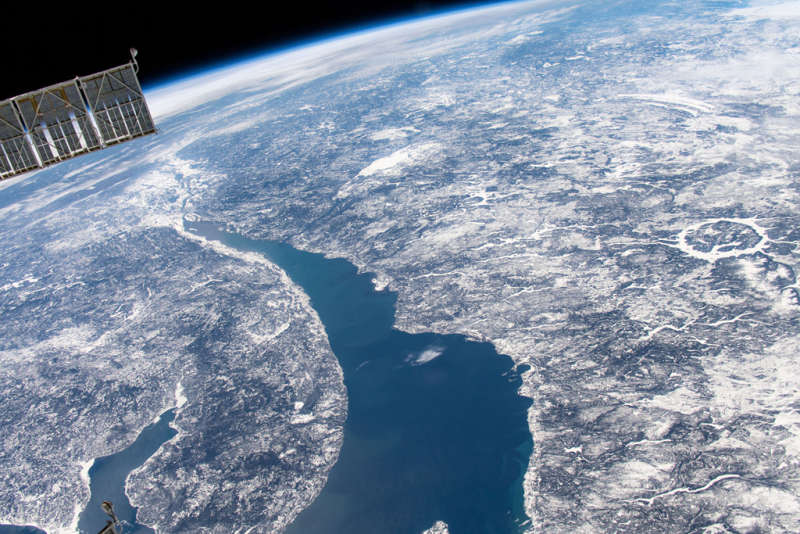Credit & Copyright: NASA,
International Space Station
Expedition 59
Explanation:
Orbiting 400 kilometers above Quebec, Canada, planet Earth, the
International Space Station
Expedition
59 crew captured
this snapshot of the broad
St. Lawrence River and curiously circular Lake Manicouagan on April 11.
Right of center, the ring-shaped lake is a
modern reservoir
within the eroded remnant of an ancient 100 kilometer
diameter impact crater.
The ancient crater is very
conspicuous from orbit,
a visible reminder that Earth is vulnerable to
rocks from space.
Over 200 million years old, the Manicouagan crater was
likely caused by the impact of a rocky body about
5 kilometers in diameter.
Currently, there is no known asteroid with a significant probability of
impacting Earth in the next century.
Each month,
NASABs Planetary Defense
Coordination Office
releases
an update
featuring the most recent figures on
near-Earth object close approaches, and other
facts about comets and asteroids that could pose a potential impact
hazard with Earth.
1999 2000 2001 2002 2003 2004 2005 2006 2007 2008 2009 2010 2011 2012 2013 2014 2015 2016 2017 2018 2019 2020 2021 2022 2023 2024 2025 |
Yanvar' Fevral' Mart Aprel' Mai Iyun' Iyul' Avgust Sentyabr' Oktyabr' Noyabr' Dekabr' |
NASA Web Site Statements, Warnings, and Disclaimers
NASA Official: Jay Norris. Specific rights apply.
A service of: LHEA at NASA / GSFC
& Michigan Tech. U.
|
Publikacii s klyuchevymi slovami:
Earth - impact crater - Zemlya - udarnyi krater
Publikacii so slovami: Earth - impact crater - Zemlya - udarnyi krater | |
Sm. takzhe:
Vse publikacii na tu zhe temu >> | |
